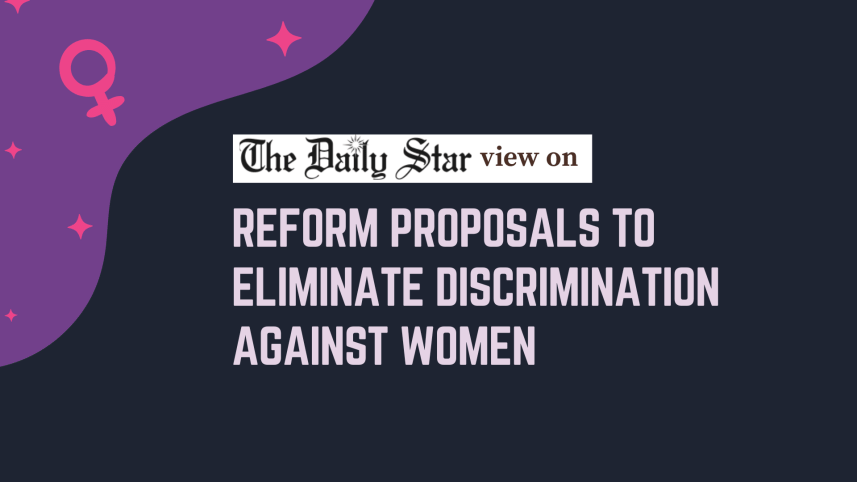We cannot miss this opportunity to truly empower women

We welcome the submission of proposals by the Women's Affairs Reforms Commission, which provided 433 recommendations aimed at eliminating discriminatory provisions and structures in our laws, policies, and institutions. Unlike many other reform reports, this one specifies recommendations that the interim government can implement immediately. Among these is the withdrawal of Bangladesh's reservations to two articles of the United Nations Convention on the Elimination of All Forms of Discrimination Against Women (CEDAW), which ensures legal equality in marriage and divorce.
In this regard, the commission proposed the introduction of a uniform family code to ensure equal rights in marriage, divorce, inheritance, and maintenance for women across all religions—which can be made applicable optionally during the current government's term. Other laws that require strengthening and/or amendment to make the provisions more inclusive and victim-friendly, according to the commission's proposal, include the Prevention of Domestic Violence Act-2010, the Guardians and Wards Act-1890, and rape and labour laws. The report also recommends enacting a new law on sexual harassment based on the 2009 High Court guidelines.
Rights of female migrant workers, domestic labourers, sex workers, as well as the elderly also came under the purview of the commission's recommendations. For example, it urged the government to ratify and implement the International Labour Organization's Conventions C189 and C190, which focus on domestic workers' rights and protection of workers from workplace violence and harassment, respectively. It proposed the establishment of help desks at all police stations and courts for women, children, the elderly, and people with special needs. Other recommendations include ensuring six months' paid maternity leave and two weeks' paid paternity leave in all sectors, and implementing the National Broadcasting Policy 2024 to stop mass media from presenting women in a negative light. In the political arena, the most notable recommendation was expanding parliamentary seats to 600, with 300 seats for directly elected women. Although this appears "unrealistic," the commission chief believes such an increase is necessary.
For years, rights groups have been advocating for many of these changes only to be ignored by successive governments, thus allowing the perpetuation of repressive and discriminatory laws denying women equal rights. For the first time, a comprehensive document has now been drawn up with the aspiration that we can actually move forward towards a more women-friendly society. Sadly, certain quarters, instead of presenting constructive criticism and logical arguments for or against the recommendations, are already voicing their opposition and demanding the dissolution of the Women's Affairs Reforms Commission itself. We are, however, encouraged by Chief Adviser Muhammad Yunus' directive to promptly implement recommendations where possible. We hope that all political parties and other stakeholders will engage in healthy debate about the recommendations, recognising that ensuring equal rights for all genders will lead to a just, fair, and prosperous nation.



 For all latest news, follow The Daily Star's Google News channel.
For all latest news, follow The Daily Star's Google News channel. 


Comments